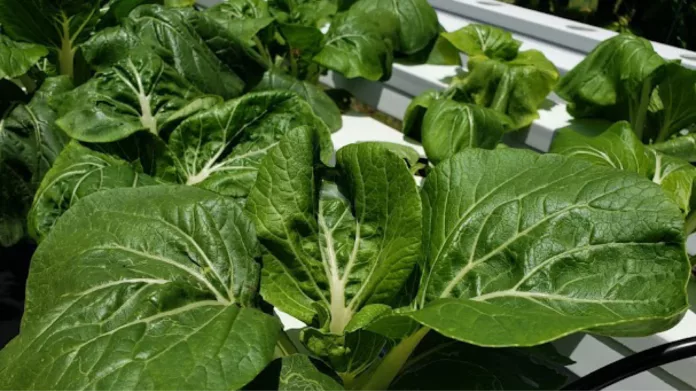By S Natalya Lawrence – National Coordinator, GEF Small Grants Programme
An organisation with a heart for the development of youth and women is a fitting way to describe the Gilbert Agricultural and Rural Development (GARD) Centre.
Established in 1989, the GARD Centre has dedicated its resources to providing life skills in the areas of agriculture, environmental conservation, entrepreneurship, technical and vocational skills, and business development skills to these target groups. Over the past 33 years of operation, GARD Centre has supported the development of approximately 6,000 persons.
Being an NGO, GARD Centre is heavily reliant on donations and external funders. However, the organisation has also put steps in place to support their continuity. One of these steps is to revitalise a climate smart agricultural system, which the centre uses for both training and production.
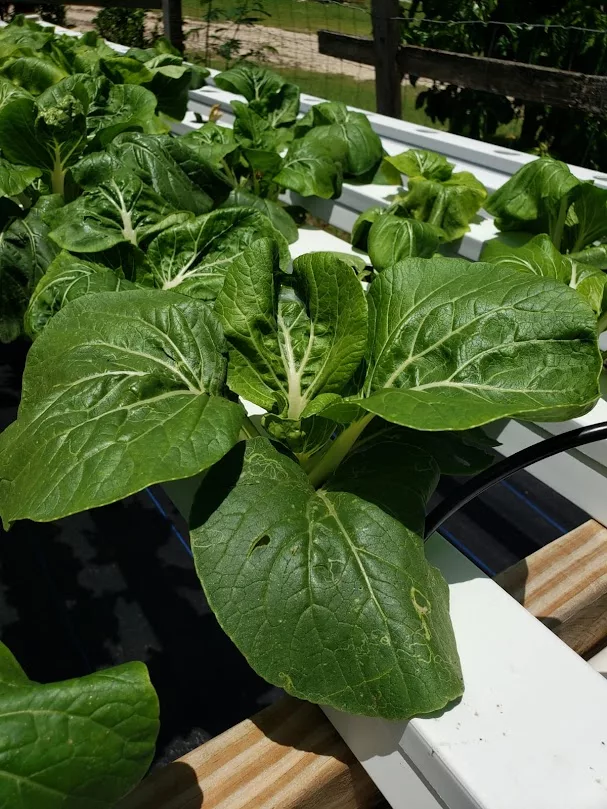
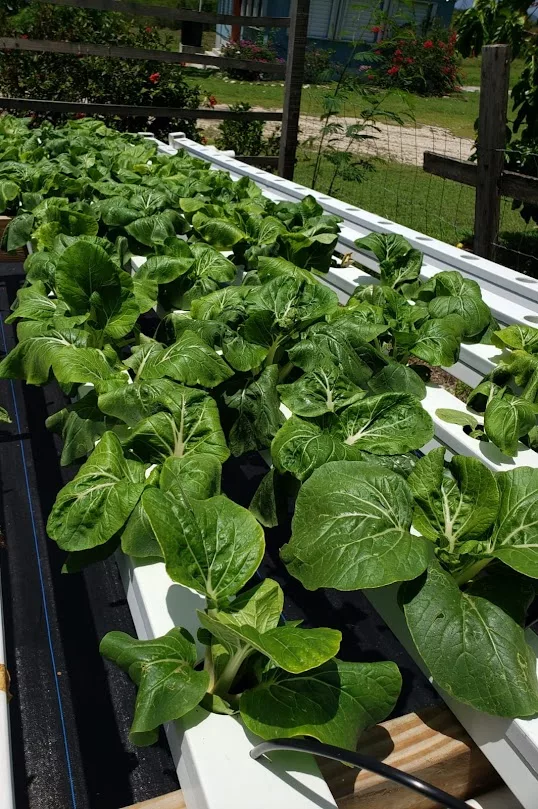
In 2022, the Gard Centre successfully accessed funding from GEF Small Grants Programme – UNDP, under a project entitled, “Increasing food security by reducing the impact of drought and improving security”. The project goal is “To increase the GARD Centre’s crop output through the use of climate smart technologies and farming approaches that reduce the impact of drought, while increasing farmers’ capacity and public awareness about climate smart agricultural approaches”.
The centre first had to address issues of damage, securing the perimeter from roaming livestock, and using a system that is easy to dismantle and store during severe weather events. The next step was to re-establish the hydroponics system, using this as training for GARD Centre’s current students and volunteers. The focus on climate-smart technology is important as we live in a water-scarce, hot country. On a recent visit to the centre, the Executive Director, Ms June Jackson, explained straightforward techniques being employed to improve the system. As an example, the team will use increased height for the shade cloth installation, providing the necessary shade for the crops without sacrificing adequate ventilation.
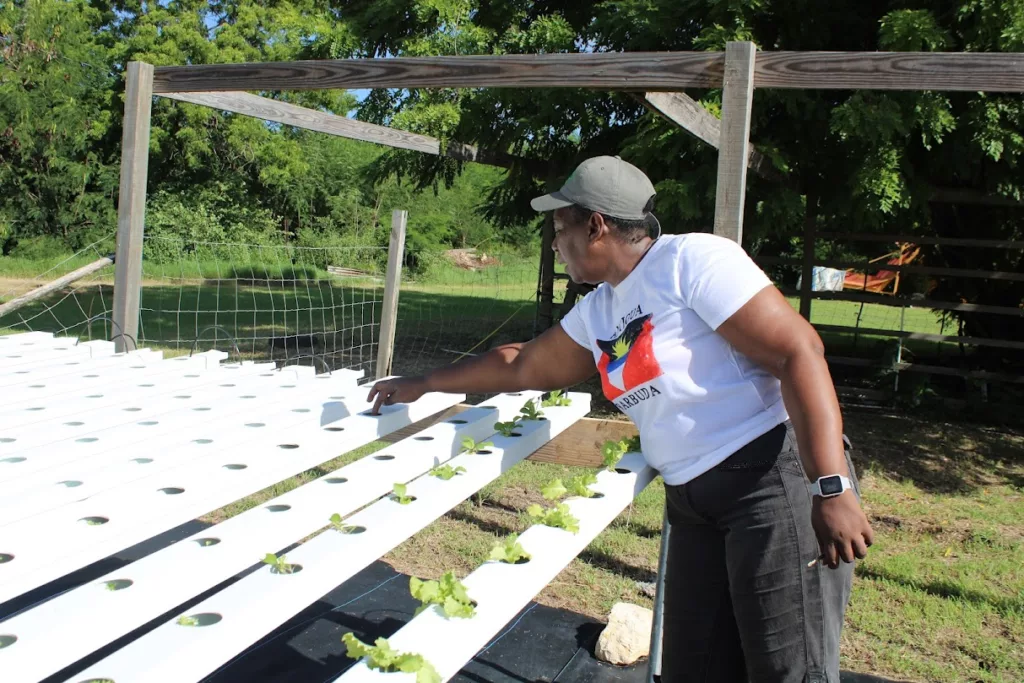
The project, though seemingly simple, is timely and relevant. As climate change worsens, the Food and Agricultural Organization (FAO) predicts that the increased occurrence of droughts will increase poverty in poorer households, especially in food insecure regions. In particular, groups with restricted access to resources and therefore least capacity to adapt, such as women and youth, will be the most affected (FAO, 2015). By using water efficient technology and available land to grow climate adapted crops while ensuring security, the GARD Centre’s agricultural unit will be productive despite drought challenges.
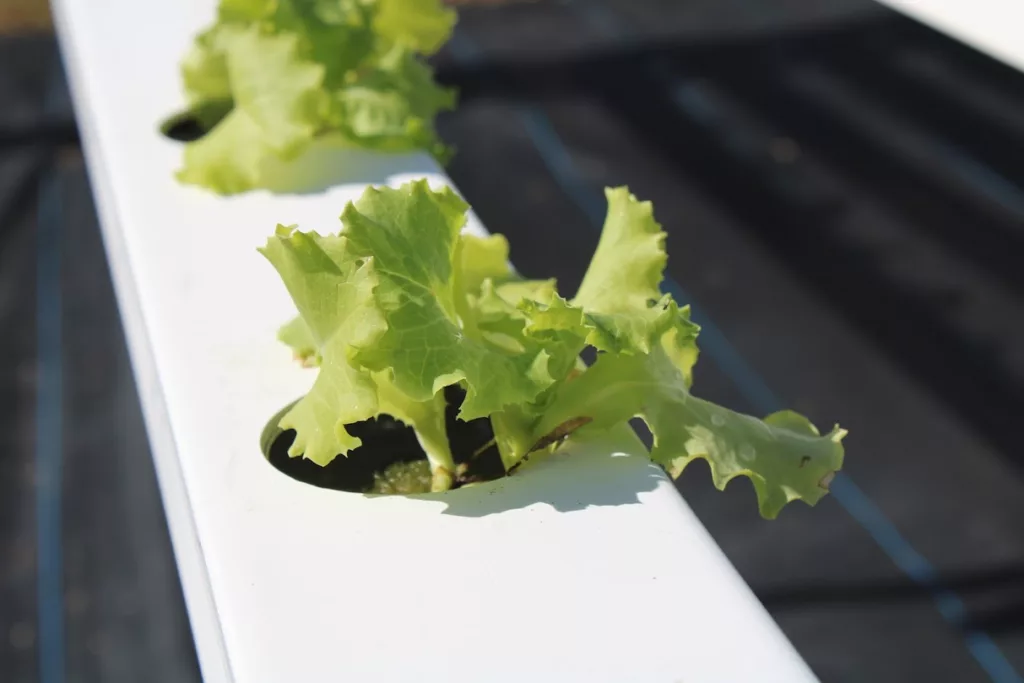
The centre will use this experience to demonstrate climate smart crop production approaches to students and other groups in the community, including women. By providing training to youth, women and other vulnerable groups, the centre is investing in agriculture, which by extension, will reduce the risk of climate induced poverty.
The system has already yielded returns, not only in the increased capacity of the project team and students, but also, in production. A healthy harvest of bok choy has already been sold and several varieties of lettuce are just beginning to sprout.
As that aspect of production is well underway, GARD Centre’s next step is to incorporate drought-tolerant crops in a ground-based approach. These crops will help to reduce the centre’s production costs since the adapted crops will not require as much water as similar crops would traditionally consume, nor will they rely on the use of chemicals or non-organic fertilisers as mulching with Vetiver grass is incorporated.
Further, GARD Centre also commits to implementing a strong educational component in this project. The life skills gained will prove invaluable, but the understanding of why these methods of agriculture are being employed is equally important. Climate change affects us in a real and negative way. Grasping the urgency of climate action, particularly through innovative agricultural practices, will be emphasised in as GARD Centre works with its team, its students and community members. Already, the support for this project is evident as past and current students, private citizens, other non-profit organisations and key government stakeholders actively participate in project implementation. Special mention must be made to Ministry of Foreign Affairs, Agriculture, Trade & Barbuda Affairs and its technicians for their continuous and unwavering support.
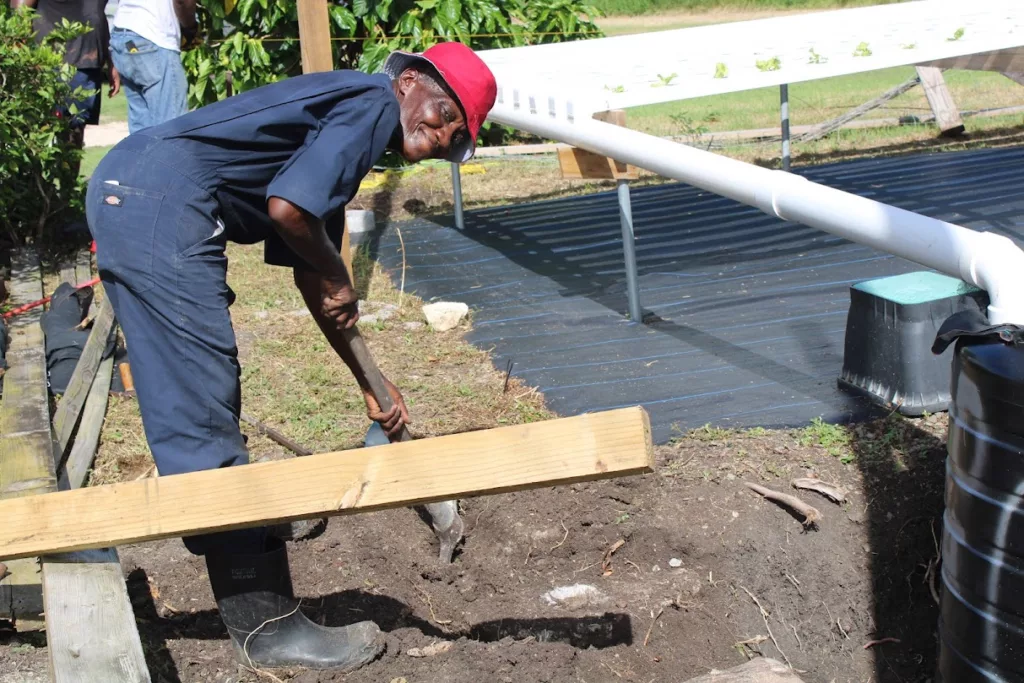
GEF SGP awards up to US $50,000 to a grantee partner within a cycle. A call for new proposals will be launched very soon. Please visit: bit.ly/anubbqgefsgpgrantpackage to find all relevant forms to complete application. We strongly encourage CSOs from across the country to reach out with your project concepts.

